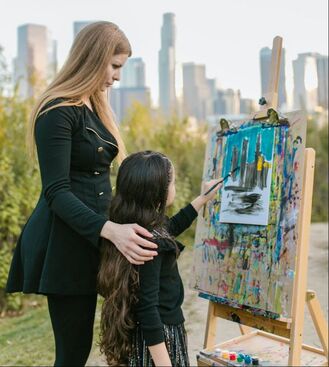 “Sharenting” is a term that describes sharing about kids or young people online. “Sharenthood: Why We Should Think Before We Talk About Our Kids Online,” is a new book by Leah Plunkett. Plunkett argued that “sharenting” happens any time an adult in charge of a child’s well-being, such as a parent, grandparent, teacher or coach, transmits private details about a child via digital channels such as social media. Some of these activities clearly involve a public share, such as posting pictures of your child on Instagram, or blogging about your kids. Others seem to happen in private, but often end up turning your child into a set of data points, via fertility apps or Amazon wish lists, the use of a Nest cam, or photos stored on a cloud server. Though these platforms and devices aren’t necessarily exploitative, Plunkett argues that they involve adult decisions that accelerate a child’s entry into “digital life.” A struggle for many of us is that we want to share about our kids for family and friends; cute kids are a positive feature on social media as compared to some other types of posts; they get likes and comments which make us feel good; and social media is now part of the world we live in. So, is concern over too much “sharenting” warranted? Tim Elmore shares a story on his blog that illustrates one of the potential dangers of too much “sharenting:” It all started when April, Christine’s youngest daughter, was five years old. Christine knew April would be their family’s last baby and wanted to document each milestone and comical moment of her childhood. By the time she was ten, April was avoiding photo ops; shying away from the camera. By 13, when she had a phone of her own, April witnessed on social media just how much mom had posted on both Facebook and Instagram. She felt violated. Eventually, as a teen, April requested her mom stop sharing photos of her. It was embarrassing and drew sarcasm from her friends. In my relationship with my own kids, I have seen the shyness or embarrassment on occasion that result when they realize I have shared something about them. It has made me realize that no number of likes are worth hurting my relationship with my kids. While kids may not need full agency to dictate what can be shared about them at a young age, we don’t want to violate their trust. It can be difficult finding the balance between honoring and celebrating or sharing, and jeopardizing trust. Another real factor is privacy and security. The BBC reported on a study by Barclays bank estimating that by 2030 nearly two-thirds of identity-fraud cases affecting today’s children will have resulted from sharenting. The bank warned that parents might be "lulled into a false sense of security" and fail to understand that they are making their children "fraud targets" in the future, by publishing so much personal information which will remain online forever. Tim Elmore shares some practical guidelines to consider as we share about our kids, grandkids, or other young people online:
0 Comments
Leave a Reply. |
AuthorDr. Jolene Erlacher is a wife, mommy, author, speaker, college instructor and coffee drinker who is passionate about empowering the next generation of leaders for effective service! Archives
May 2024
Categories
All
|

 RSS Feed
RSS Feed